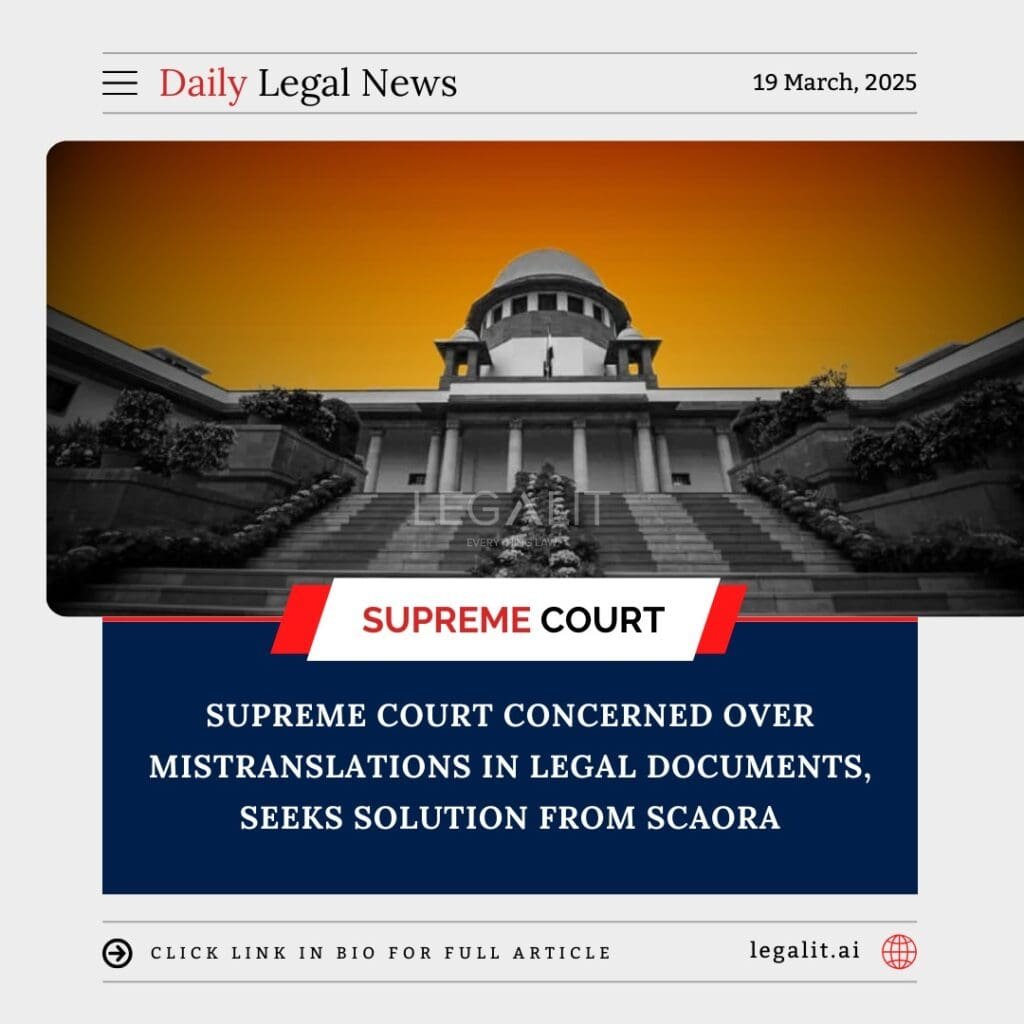
Background
The Supreme Court of India has expressed serious concern over the increasing instances of mistranslated legal documents submitted before it. The bench, while hearing a case, noted that inaccurate translations of official documents, particularly from regional languages to English, are leading to confusion, misinterpretation, and delays in judicial proceedings. Taking note of this issue, the apex court has sought the intervention of the Supreme Court Advocates-on-Record Association (SCAORA) to find a practical solution.
Concerns Raised by the Supreme Court
- Errors Impacting Justice
- The court observed that mistranslated documents often distort the meaning of crucial legal terms, which can mislead judges and affect case outcomes.
- Inaccurate translations can also lead to unnecessary adjournments, further burdening the already overloaded judicial system.
- Need for Standardization
- The bench pointed out that there is no uniform system for verifying translations, leading to inconsistencies in legal records.
- In many cases, petitioners and advocates rely on unofficial or machine-generated translations, which fail to capture the legal nuances of regional languages.
- Accountability and Responsibility
- The court stressed the need to hold translators accountable for errors that could have serious legal repercussions.
- It also raised concerns over the lack of qualified legal translators and the absence of a centralized mechanism to ensure the accuracy of translated documents.
Possible Solutions and SCAORA’s Role
- The Supreme Court has urged SCAORA to explore ways to standardize the translation process and ensure that only verified translations are submitted in court.
- Some proposed solutions include:
- Establishing a panel of certified legal translators with expertise in regional languages and legal terminology.
- Implementing a court-monitored translation verification system to cross-check documents before submission.
- Encouraging the use of AI-based translation tools, supplemented by human verification, to improve accuracy.
- Introducing mandatory training programs for advocates and court staff handling translated documents.
Conclusion
The Supreme Court’s intervention highlights the pressing need for accurate and standardized translations in the judicial system. By involving SCAORA, the court aims to establish a mechanism that ensures linguistic precision in legal proceedings, preventing potential miscarriages of justice due to translation errors. The outcome of this initiative could lead to significant procedural reforms, improving efficiency and fairness in the judiciary.